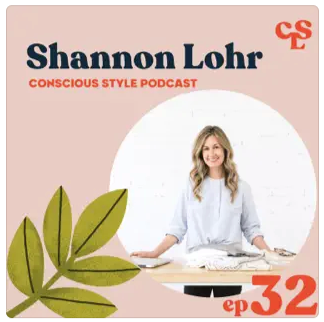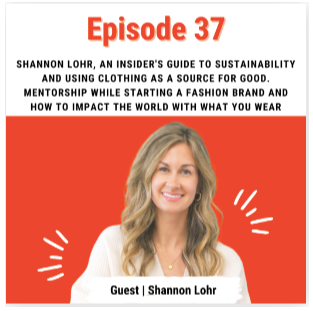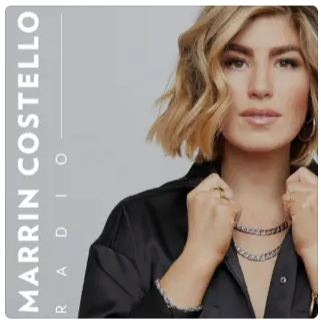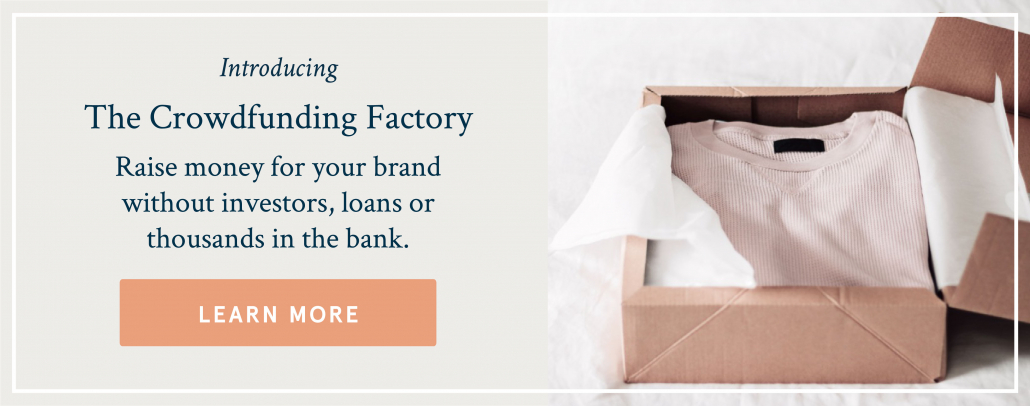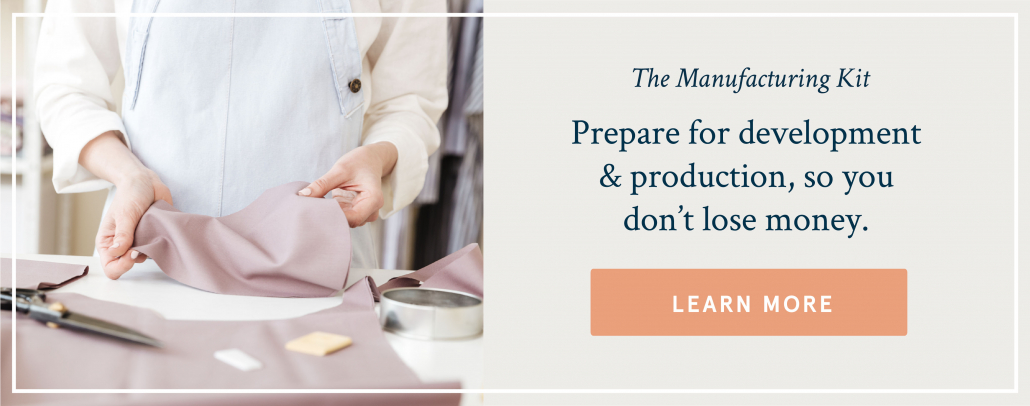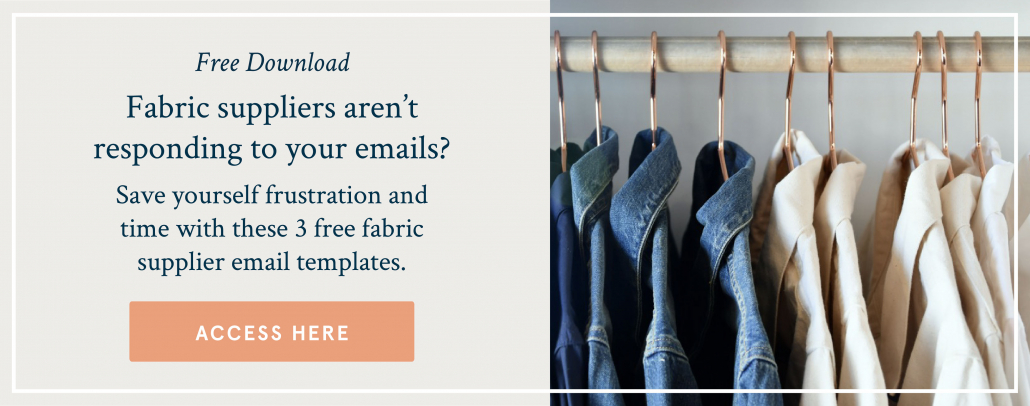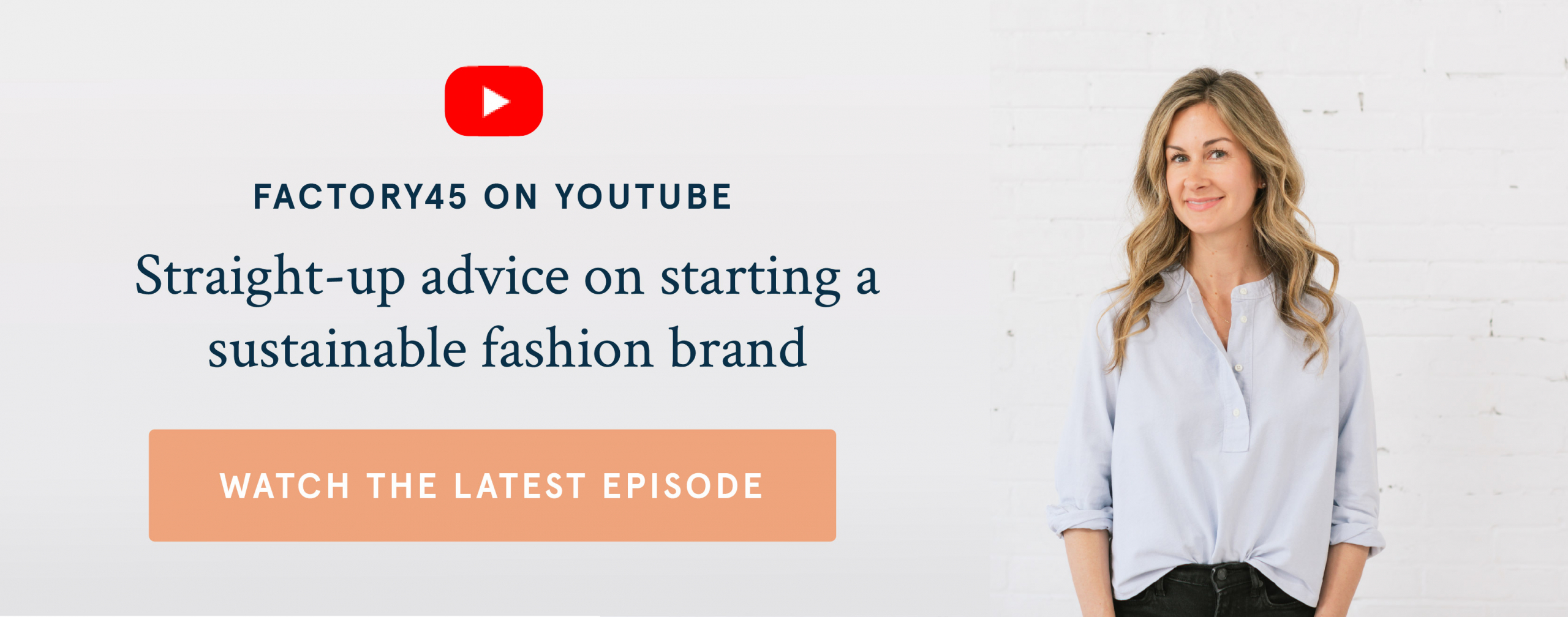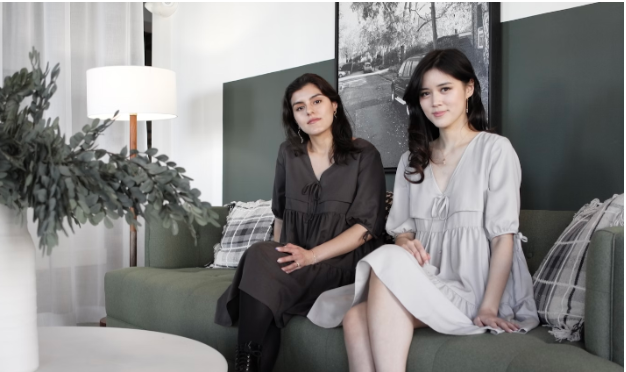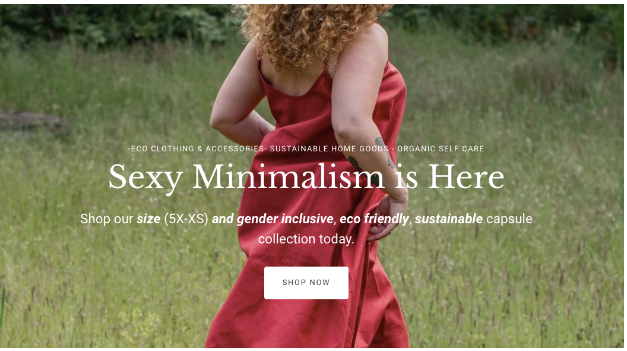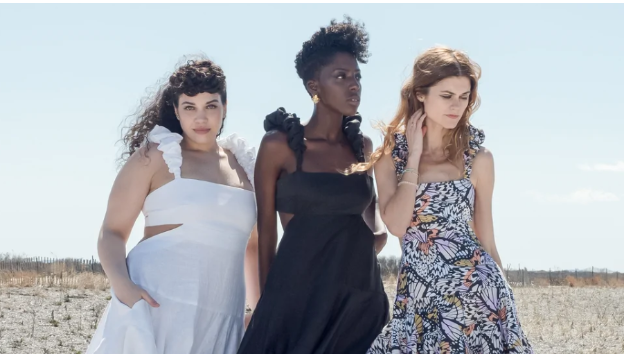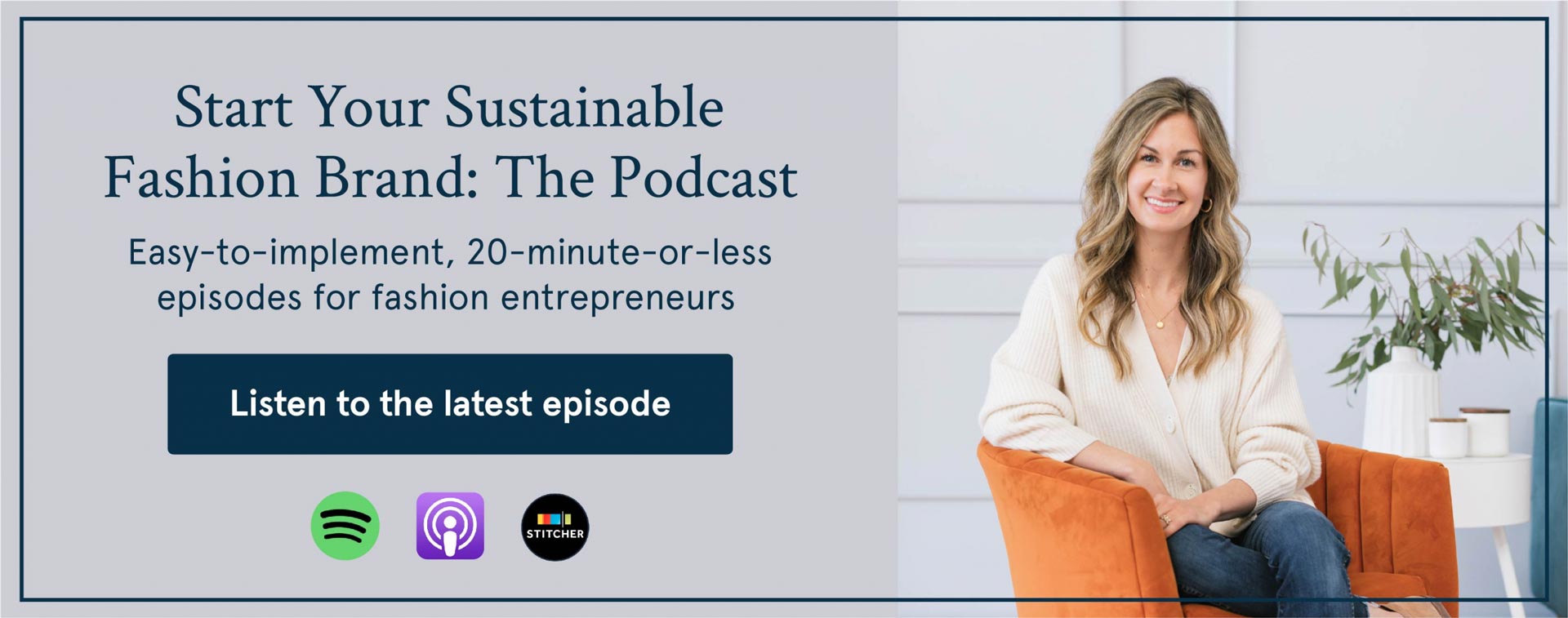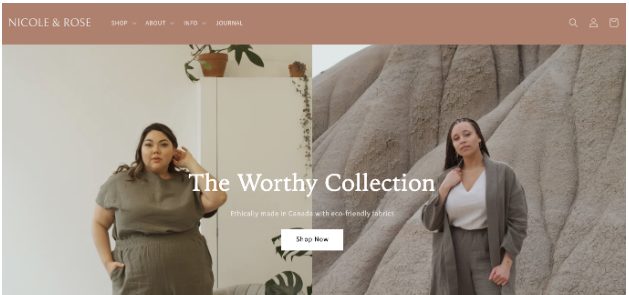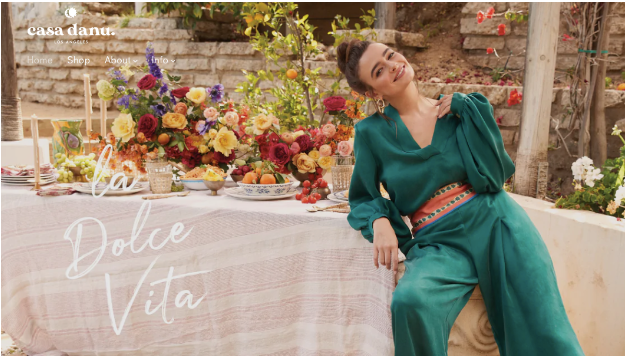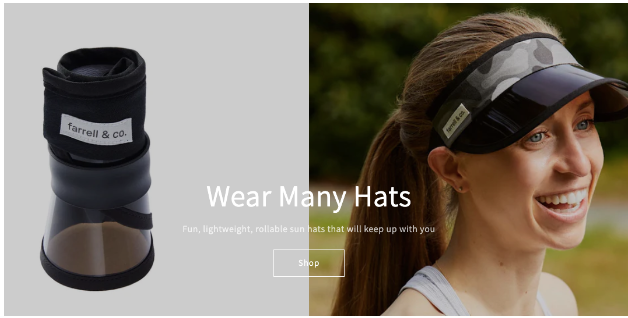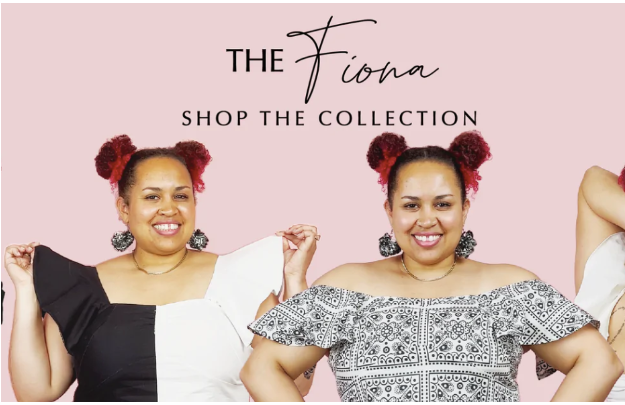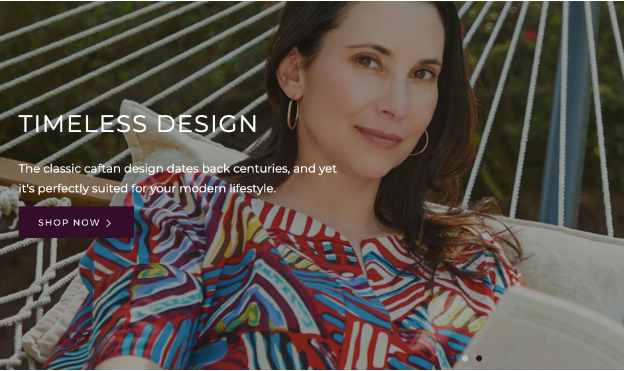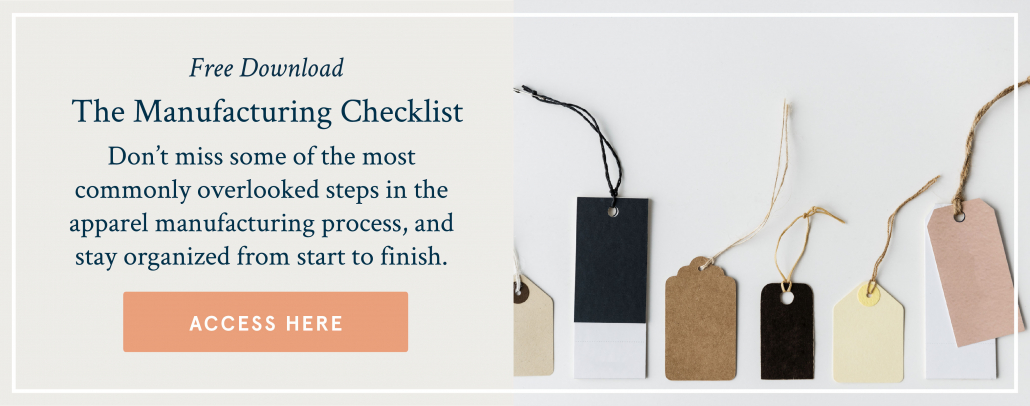Listen on Apple Podcasts | Listen on Spotify
I am so excited to talk about this topic today because it’s a question that I have strong opinions on and many thoughts to share. Should you quit your day job to start your fashion brand? And taking it one step further – if you stay – should you tell your boss that you’re starting a business? That’s what we’re talking about on today’s episode!
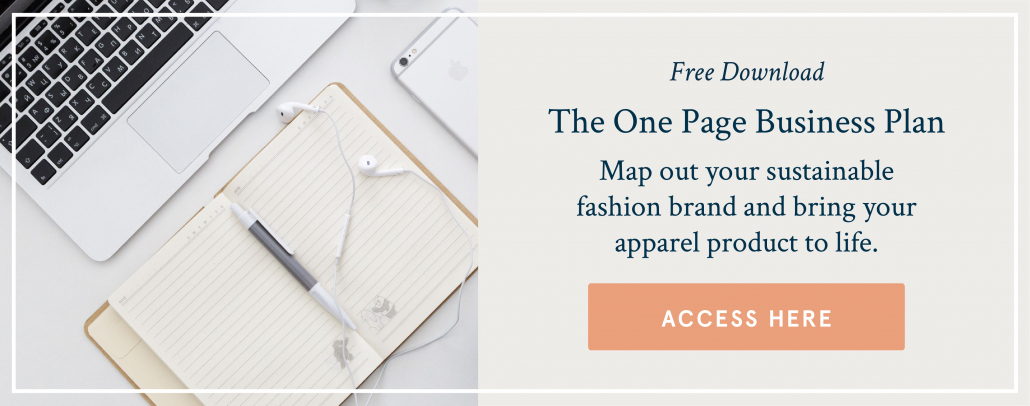
TRANSCRIPT
I am so excited to talk about this topic today because it’s a question that I have strong opinions on and many thoughts to share. Should you quit your day job to start your fashion brand? And taking it one step further – if you stay – should you tell your boss that you’re starting a business? That’s what we’re talking about on today’s episode!
So many thoughts. Where do I begin? Okay, let’s start here:
There is a myth or a false belief being perpetuated by social media, business coaches and so-called experts that in order to be a legitimate entrepreneur and start a legit business, you have to give everything up, go all in, quit your job and have no back-up plan so you can dedicate all of your time and energy into starting your business.
The message is that you have to go all-in on your dreams and if you don’t, then you don’t believe in yourself enough. That you’re not serious. And that if you don’t give 110% then you’ll only ever have a side hustle or a hobby.
And I call BS on all of that.
Here’s what I know… I’ve started three businesses over my 10+ years of entrepreneurship. And while I was starting each one, I worked a job at the same time to make money and support myself.
And do you know what? Working that j-o-b is one of the biggest factors that I attribute to my success.
Why? Because I didn’t have to rely on the revenue of my businesses to support me until it was financially stable.
While I was starting my clothing brand back in 2010 I worked as a waitress and bartender to pay my bills. When I was starting my consulting business I worked as a content & communications manager for an author. When I was starting Factory45, I went back to bartending. It wasn’t until 2015, and I saw the financial projections for Factory45, as well as enough cash coming in, that I poured my last drink and quit bartending for good.
In fact, this is what my life looked like for a solid six years:
Head to the bar at 7pm to start my shift. Work until last call at 2am, clean up, close down the bar, wind down and get home around 3-3:30am. Wake up at 9:30am and work on my business during the day until my shift started again at 7pm the next night.
Let me tell you, it was a grind. But also, working a day job from 9-5 every day (or longer) is a grind too. And bartending gave me the freedom during the day to work on my business.
It also gave me another kind of freedom: The freedom to not make major decisions under pressure. I knew that in the early stages of building any type of business, when things are so new and so vulnerable, the last thing you want is to rely on that fledgling business to support your livelihood.
So whenever people ask me, should I quit my day job to start my fashion brand? My answer is always going to be, “No.” Not only is it important to have an income for things like your rent and groceries, but every new business comes with expenses. In the case of a fashion brand, you’re going to want to have cash flow to put towards things like patterns and samples and photoshoots.
I’ve found that even when people have a chunk of savings to put towards starting their brand, they still feel restricted in how they’re going to spend it because it’s a finite amount. There is freedom in knowing that you have money coming in every month. And what a privilege to be in that position – not something to be taken for granted.
Okay, so if I’ve convinced you to keep your day job while you’re starting your fashion brand – that brings us to the next question which is, should you tell your boss that you’re starting a business?
To be fair, the answer to this is nuanced and depends entirely on your unique situation, your job, the relationship you have with your boss, the work culture, and so many other factors. With that in mind, I’ll just share how some of my past entrepreneurs in Factory45 have navigated the situation:
One person, who wished to be unnamed, said: “I decided not to tell my employer because I didn’t want to risk losing my means of salary that was crucial to funding my own venture. I also thought it would create unnecessary tension that I wanted to avoid.”
On the other hand, Tiffany, said: “I didn’t have an intentional conversation with my employer about starting my own business, but I didn’t make any great efforts to hide it either. I’m friends with so many colleagues, including supervisors, on social media (and in person) and it would have been pretty impossible to keep it a secret from them. That said, they found out when the rest of my social media network did and I launched my website online.”
She went on to say: “I was pretty nervous about the idea of them finding out, but I also knew that as long as I was doing my job well, it shouldn’t be a problem and I always made my “real” job the priority.”
And Colleen said: “I was about three months into Factory45 before I told my boss. I eventually had to because I often had to stop at my pattern maker in the AM or had to leave early to pick up fabrics, etc. They were understanding, but made it a point that my project management position came first. I always felt a little on pins and needles, juggling both jobs and feeling a little timid about asking to leave early.”
So, there you have it, three different scenarios and outcomes of navigating your business and your job. I will say that all three of these people ended up leaving their day jobs eventually to run their businesses full time. They just didn’t do it right away.
I hope that’s helpful advice to hear and a different way to think through the possible compulsion to just go and quit your job. It’s something you should think long and hard about and if you do make the decision to leave, then I would make sure you have a significant chunk of savings (at least $5-10K, depending on where you live) and the means to make money in another way (freelancing, side hustle, bartending, babysitting, etc.) if you have to.
In the meantime, if you’re interested in learning more about how to raise money for your fashion brand – without draining your savings, taking out a loan or finding investors – I’m teaching a free workshop that will teach you how to get started. This is the most sustainable and least risky way to launch, that I teach all of my entrepreneurs in Factory45, and I’m offering it to you for free. Sign up at https://factory45.co/sustainable-fashion-event


